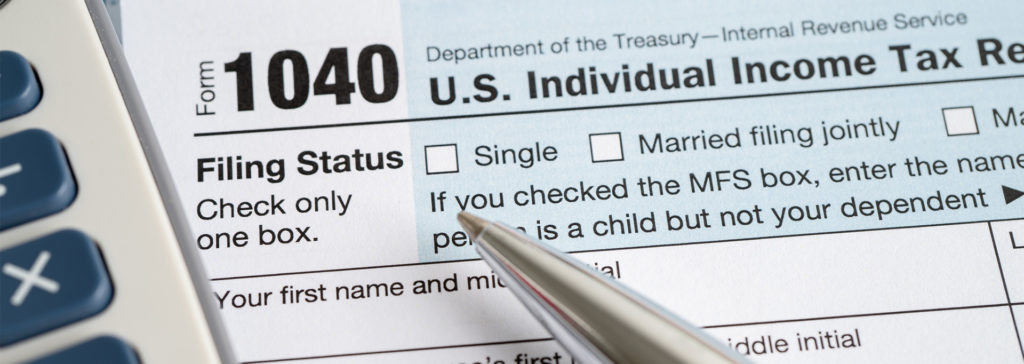Most products on this page are from partners who may compensate us. This may influence which products we write about and where and how they appear on the page. However, opinions expressed here are the author's alone, not those of any bank, credit card issuer, airline or hotel chain.
According to a 2022 Robert Half survey, 57% of all U.S. companies planned to offer year-end bonuses in 2022. But just like your regular paycheck, bonus checks are subject to taxes. What are the tax rules for bonuses, and is there any way to lower the taxes on them so you can keep as much money as possible? Taxes cannot and should not be evaded, but the following information and tips may help you minimize the taxes on your bonus.
How are bonuses taxed?
The Internal Revenue Service (IRS) views a bonus as income, but it is classified differently than your regular paycheck. Since a bonus is a compensation awarded at your employer's discretion, the government views it as supplementary income and taxes it differently.
How bonuses are taxed depends on how your employer withholds taxes on your bonus.
The Aggregate Method
If your employer chooses this method, they will issue your bonus as part of your regular salary and calculate the withholding percentage based on the total.
If your employer normally withholds 30% of your wages for income taxes, 30% of your bonus would also be withheld. Keep in mind that withholding taxes are just an estimate, so when you file your return, it may be possible to recoup a portion of what was withheld.
Example: If your monthly salary is $5,000, your annual salary is $60,000 which puts you at the 22% tax bracket for a single filer. If you receive a $10,000 bonus from your employer, your income for that month would be $15,000. Under the aggregate method, you would be taxed as if you made $180,000 ($15,000 x 12 months), which is now in the 32% tax bracket for a single filer.
The Percentage Method
If your employer chooses the percentage method, your bonus will be issued separately from your regular paycheck with a flat rate of 22% withheld. This flat rate only goes up for bonuses of over $1 million. This is by far the simplest method for employers.
Interestingly, bonuses are not the only payments viewed as supplemental wages by the IRS. Back pay, certain commissions and forms of equity compensation, overtime pay, tips, and cash prizes also fall into this category.
 Related Article
Related Article
2024 Tax Shake-Up: The Changes You Need to Know to Stay Ahead of the Game
7 Tips to Lower Taxes on Your Next Bonus
If your employer uses the percentage method over the aggregate method, you have likely already lowered your taxes on the bonus. But there are other ways to minimize your tax burden without evading taxes.
1. Itemize Your Deductions
Most taxpayers take the standard deduction, but if you put in a little extra effort at record keeping and itemizing your deductions, you may be able to trim a little more off your total income tax bill.
If you have business expenses, you can use your bonus to pay for equipment or software upgrades, which can be deductible. You may also consider charitable contributions to lower your tax burden. Also, if you have qualifying medical expenses that you can itemize as deductions, you can expect to reduce your bill.
2. Put Your Bonus Into a Tax-Advantaged Account
If you haven’t met your annual contribution limit at the time of your bonus, consider asking your employer to put all or part of it into your 401(k) or traditional individual retirement account (IRA). The contributions to these accounts are made pre-tax, so this can be an effective way to lower your tax burden. To estimate whether you can leverage this option, consider the limits for contributions in 2023 as a general guide:
- IRAs: The contribution limit is $6,500 for those under 50, and $7,500 for those 50 and older
- 401(k)s: The contribution limit is $22,500 for those under 50, and $30,000 for those 50 and older
As you can see, there is more room in a 401(k) to turn your bonus into a contribution. However, note that Roth IRAs do not qualify for this strategy.
Another option is to contribute toward a Health Savings Account (HSA). Contributions to an HSA can lower your taxable income and, therefore, your tax obligation. Additionally, withdrawals from an HSA are tax-free. As a guide, the maximum contributions to an HSA in 2023 are $3,850 for individual contributors and $7,750 for families.
3. Ask Your Employer for a Tax-Exempt Bonus Alternative
Taxes are required on a cash bonus, gift card, vacation, or other rewards of monetary value. But there are exceptions. If your employer classifies an employee bonus as an achievement award, it can be exempt. However, it must meet the following requirements:
- It cannot be cash or a cash equivalent, such as gift cards or money orders
- It cannot be a prohibited item, such as stocks, bonds, event tickets, or vacations
- It must be tangible personal property, such as a small prize (wine or other gifts) or an employee benefit
- Its value cannot exceed $1,600 total for all awards
This alternative may not be available to everyone, and sometimes employees would likely prefer a cash award rather than a tangible item.
4. Defer Your Bonus
Technically, this isn’t a way to lower your taxes because even if you defer your bonus to a later date, you will eventually pay taxes on it. But deferring your bonus to the following year can provide you with breathing room. It can limit your tax bill for this year and give you time to save up for a higher bill next year. This might be a good option for those whose bonus might push them into a higher tax bracket.
For example, consider the following situation: Imagine your annual income is $89,000, which puts you at the upper edge of the 22% tax bracket as a single filer for the 2022 tax year. But your employer offers you a $1,200 bonus. This would push you to the next tack bracket of 24%. If you expect your income next year to be slightly lower at $85,000 and you defer your $1,200 bonus to next year, you can still stay in the same tax bracket for at least the current year.
5. Pay Off Taxes
Rather than spending your bonus in traditional ways, you can use it to pay a tax bill, such as prepaying your property taxes for next year. IRS guidelines do state that property tax prepayments for the next year can be deductible if you paid it in the current year. However, your eligibility may vary depending on your local area's assessment schedule and several other factors.
Ask a tax professional what prepayments can qualify as tax-deductible expenses.
6. Negotiate a Raise
You could negotiate a raise with your employer instead of accepting a bonus, which might be a good option if a lump sum would push you into the next income tax bracket. Instead, an incremental raise might keep you just within your current tax bracket.
The key to this strategy is communicating openly with your employer about why you're asking for the raise. The two of you may agree to a temporary raise to help you avoid getting hit with high taxes because of a bonus. By being open about why you're asking for a raise, you can avoid coming across as someone trying to subvert your employer's payment structure.
7. Verify If You Are Exempt
Very few exemptions exist, but bonuses are exempt from taxes if it stems from military personnel serving in an active combat zone. Consult with a tax professional to determine if other circumstances qualify for exemption or relief.
 Related Article
Related Article
9 Best and Cheapest Online Tax Services in July 2024
Managing Your Tax Obligations
The key to minimizing your tax burden on an employee bonus is to plan ahead so you can make the right preparations to reduce your overall tax burden. Make sure you manage your bonus funds wisely and consult a tax professional to help ensure you remain compliant with current tax laws and guidelines.
Frequently Asked Questions
-
Yes. The Internal Revenue Service (IRS) views a bonus as income, but it is classified differently than your regular paycheck. Since a bonus is a compensation awarded at your employer's discretion, it becomes supplementary income that can be taxed differently.
-
Your bonus may be taxed higher if your employer uses the aggregate method for tax withholding, which typically results in your bonus being taxed the same as your regular salary. This pushes you into a higher tax bracket for those earnings.
-
Investing your bonus into your 401(k) can be an effective way to minimize taxes. 401(k) contributions are made pre-tax and serve to reduce your taxable income. Of course, to leverage this option, you need to be below the maximum annual contributions. For 401(k)s, the 2022 contribution limit is $22,500 for people under 50 and $30,000 for those 50 and older.



















